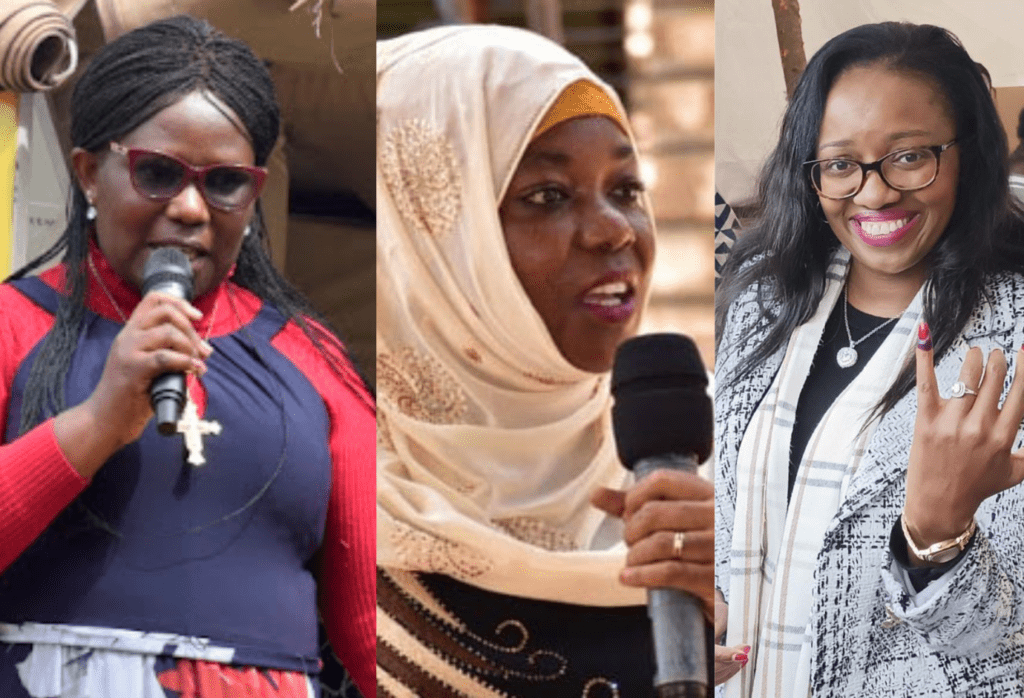Kenyans are celebrating a record number of female politicians elected into positions of power as new president, William Ruto was voted in.
Seven governors, three senators and 26 MPs are women — a welcome achievement for a country known for its lag on equality, and for failing to meet its 2010 constitutional clause that insisted each gender must have at least a third of seats in parliament.
In the country of roughly 50 million, male politicians have historically dominated the cohort of elected officials.
The latest elections show that trend may be shifting. In the south-west city of Nakuru, female candidates were elected to eight positions, including Susan Kihika as Governor, Tabitha Karanja as Senator and Liza Chelule as the woman representative.
Senator Karanja, CEO of Kenya’s second largest brewery Keroche Breweries Ltd, said: “Now sit and watch and see what women can do in office.”
Governor-elect Susan Kihika thanked the voters of Nakuru “for being progressive and electing three women to the leadership of this county”
The 48-year old former lawyer recently stepped down as the President of the IPU Bureau of Women Parliamentarians, an international body of female politicians who work to ensure women’s issues are placed at the centre of national parliaments.
The female politicians from Nakuru all belong to Ruto’s United Democratic Alliance party, the centre-right party that was forecasted to win.
The president-elect took to Twitter on Saturday, writing: “We celebrate the many women who have broken barriers to climb the political ladder. Best wishes as you embark on your new responsibilities.”
Former justice minister Martha Karua missed out on becoming the country’s first female vice president, after her leader, Raila Odinga, lost against Ruto.
Seven gubernatorial positions were won by women — more than double the number in 2017. Women claimed counties including Kirinyaga, Machakos, Kwale and Embu.
In Meru County, Kawira Mwangaza, a former woman’s representative and CEO of Mwangaza Distributors, a company specialising in energy solutions, ran as an independent candidate, defeating her male competitors.
“Thank you for believing in me and in women leadership,” she said after her win. “I am promising you that Meru will be the best county because there will be sustainable development projects.”
At just 24, Linet Chepkorir, made history by becoming the youngest female parliamentarian after securing the role of woman representative in Bomet County.
On Twitter, the recent college graduate wrote: “We have won! Thank you residents of Bomet for giving me the mandate to contest for the woman representative seat. I am a testimony to God’s greatness. God bless you, I love you.”
“A big thank you to all who voted for me. I intend to show you that your vote has not been wasted. I will uphold all the responsibilities and ensure that the trust that you have bestowed upon me is not broken.”
In a recent interview, she spoke about the importance of persistence and ambition.
“In this journey, many people will discourage you, and many others will laugh and scoff at you, but I choose not to listen to them because they make me lose focus,” she said. “I go for what I want because I believe I can.”
“For a long time, women and youth have been condemned when seeking elective positions. It is a narrative we are seeking to turn around to enable both the rich and the poor to compete on an even playground.”
The August elections saw 22.1 million voters registered to vote, with up to 40 per cent of voters aged between 18 and 34.
Ahead of the election, female candidates faced a slough of online abuse that included sexual innuendos, aggressive sexist language and discriminatory gender stereotyping.
Before Election Day, The International Federation for Human Rights and the Kenya Human Rights Commission warned that the abuse was a strategy “consciously deployed to prevent women politicians or candidates from participating in active politics”.
The Federation’s vice-president Sheila Muwanga said: “The failure by the government to curb the targeting of women in politics and to hold perpetrators accountable… has enabled repeat violence.”
On the Women, Business and the Law 2021 index, Kenya scored 80.6 out of 100 and ranked 95 out of 156 countries in the Global Gender Gap Report last year.


